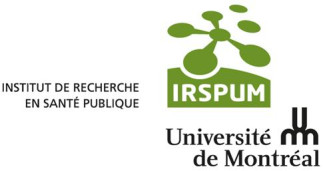Ce séminaire scientifiques est oganisé par l'Institut de recherche en santé publique de l'Université de Montréal. Il sera donné par Tiago Correia.
Conférencier
Tiago Correia, PhD in Sociology from the Lisbon University Institute (Portugal) is a researcher at Centre for Research and Studies in Sociology (CIES-IUL) and invited Assistant Professor at Egas Moniz Health Sciences Superior School (ESSEM). Currently he holds a postdoctoral fellowship at the IRSPUM, with a project focused on comparing Portuguese and Quebec health care systems from its politics of privatization and rationalization. At the same time, he has been appointed as a representative member from Portugal in the EU research network COST ISO 903 (Enhancing the role of medicine in the management of European health systems). Much of his research and academic attention has been paid to hospital organizations, medicine and health policies. His latest publication is entitled: Medicine: acting in a changing Health (in edition).(Detailed CV on:
http://cies.iscte.pt/en/investigadores/ficha_completa.jsp?pkid=267&subarea=todos)
Résumé
This seminar is focused on the contribution that sociology can offer to public health, especially in what hospital functioning is concerned. It departs from the introduction of New Public Management (NPM) principles into these organizations, which are expected to bring more control and supervision. However, despite this strengthening of managerial supervision, a recently ended research has proven that not all administrative measures are implemented uniformly by doctors and the same measures do not always produce the same results. From a sociological point of view, there are much more complex social interactions that are kept out of sight by institutional-oriented approaches to these organizations. Therefore, the goal for this seminar is to bring forward the reasons behind such conclusions, which can be reached only if we follow a different way to analyse public policies, not looking at their more general dynamics, but by paying more attention to its effects both on organizations and professionals. The conclusion is that there are clearly different medicines that lead to different powers among the different medical specialities. As a consequence, no organization can be effectively managed without knowing how to interpret the type of medicine in presence. Another conclusion concerns the achievement in looking for doctors’ rationality in their behaviour. It is known for a long time how complex and diversified the reasons that guide human action are. It is time to contradict dominant discourses that are expecting NPM to bring a simplified, technocratic rationality, forgetting organizations as living systems of action.

